Superman and the Superhero Problem
I didn’t bother watching James Gunn’s Superman in theaters. Perhaps age is catching up with me, or perhaps it’s the creeping malaise of superhero fatigue. The thought of sitting through another mindless Hollywood blockbuster surrounded by giggling, popcorn-munching bourgeois attendees was enough to make my head spin. Yet, despite skipping the theatrical experience, I’ve reflected on the film and, more broadly, on the genre that has infected the cinematic landscape like a persistent virus.
Superhero movies are often marketed relentlessly, yet what lies beneath the glossy surface is usually hollow. These films cater to a 21st-century audience plagued by short attention spans, sensory overload, and a waning capacity for critical thought. As a result, narrative coherence and thematic depth are sacrificed on the altar of spectacle. Character development, the lifeblood of meaningful storytelling, takes a back seat to frenetic plotting. The result, as with Gunn’s Superman, is a chaotic mishmash of ideas sandwiched between two slabs of explosive action.
One of the “ideas” floating in Superman is an attempted critique of Israeli actions in Gaza. Gunn constructs a fictional conflict between Boravia and Jarhanpur to mirror the real-world tragedy. At first glance, this seems like an opportunity for depth, but the execution is disappointingly shallow. The film reduces an immensely complex issue to a simplistic oppressed-versus-oppressor binary, a narrative structure that flatters contemporary sensibilities without engaging with reality.
Jarhanpur, a stand-in for Palestine, is rendered as a cultural wasteland populated by interchangeable, perpetually grieving figures. They lack individuality, history, and motivation. Why does Boravia want to annihilate them? We never find out, because the film is too busy staging its next skyscraper collapse. Instead of nuanced critique, we get imagery reminiscent of a United Nations fundraising ad.
Boravia’s leader fares no better. He is a caricature, a cartoony moustache-twirling villain with a Slavic accent worthy of an old propaganda poster. If Gunn had taken cues from Michael Corleone in The Godfather, he could have explored the moral ambiguity and cold rationality that make authoritarian figures truly terrifying. But that would require sacrificing thirty minutes of CGI explosions, and heaven forbid audiences be roused from their consumerist stupor.
The subplot involving LexCorp’s support for Boravia gestures at a critique of the military-industrial complex. Unfortunately, like much of the film’s social commentary, it is half-baked. Luthor himself is portrayed as an odd hybrid of Elon Musk and Donald Trump, an oligarch operating with cartoonish independence. In reality, no billionaire wields power in such a vacuum. They operate within intricate networks of influence, where subtlety, not brazenness, ensures survival. Gunn’s unfamiliarity with the real world shows.
Beneath these narrative shortcomings lies the fundamental flaw of the superhero genre: its belief that gods can save the world without obliterating what makes us human. These films try to elevate humanity, yet their vision of humanity is little more than ants scurrying beneath the boots of titans. Cities crumble, thousands perish, and the losses are barely acknowledged. When the dust settles, all is magically restored, punctuated by a triumphant hero-girl kiss set to swelling orchestral music.
Let us take a moment’s pause here and consider how contemporary politicians sometimes invoke these movies in their effort to drum up war propaganda. That’s not accidental. Politicians do that because they are often the audience for these types of movies—movies that make life seem like a video game with no flesh and blood consequences.
Gunn makes a half-hearted attempt at elevating humanity through Superman’s relationship with his salt-of-the-earth Southern parents. It’s a nod toward grounding the character, but the gesture is undermined by the film’s larger preoccupation with crushing antlike NPCs, disposing cartoonish Slavic villains, and other forms of destruction.
To be fair, Gunn is not solely to blame. The problem runs deeper than one filmmaker. Hollywood’s culture is steeped in shallowness and vanity, guided by a priesthood obsessed with spectacle and sanitized violence. This class of self-anointed storytellers seems constitutionally incapable of creating a genuinely pro-human medium let alone convey pro-human messages.
A single scene crystallizes Superman’s failure. After Superman defeats Luthor’s latest machination, he rants about imperfection and shared humanity, as if to assure the villain (and the audience) that he is not a god but a man among men. The speech barely ends before Krypto the annoying Superdog bursts in, gleefully thrashing Luthor like a rag doll. In that jarring tonal shift lies the essence of Hollywood’s intellectual bankruptcy: the inability to reconcile its thirst for cathartic violence with its pretense of moral profundity.
In the end, Superman is not an anomaly but a symptom of a broader cultural malaise. Superhero cinema promises transcendence but delivers sedation—a narcotic for a consumerist age that prefers explosions to introspection, archetypes to characters, and gods to men.
Read more essays by Surit Dasgupta here.

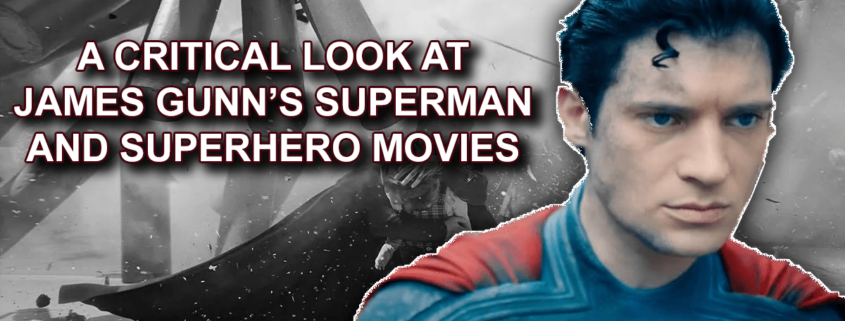

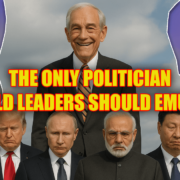
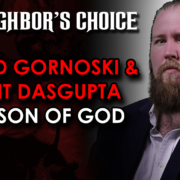
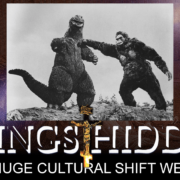



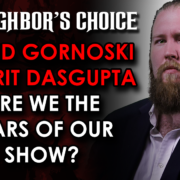


Leave a Reply
Want to join the discussion?Feel free to contribute!